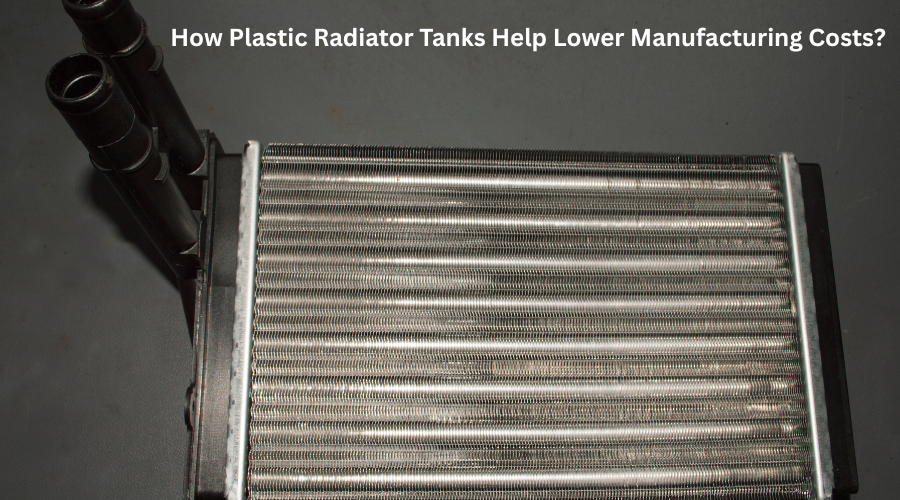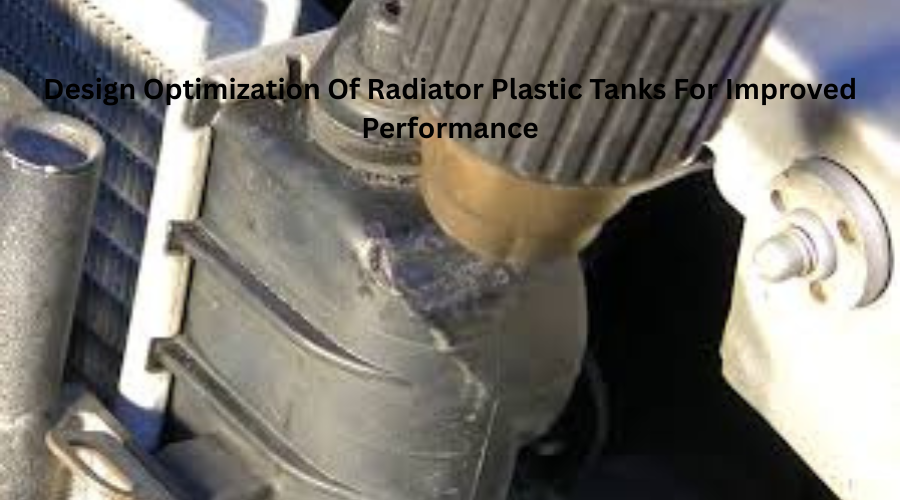Top 5 Benefits Of Using Plastic Tanks In Auto Radiators
- linghangtechnology
- Feb 14
- 3 min read

The cooling system is a crucial component of any vehicle, and the radiator plays a vital role in maintaining optimal engine temperature. In recent years, auto radiator plastic tanks have gained popularity over traditional metal tanks due to their numerous advantages. Whether you're a car enthusiast, mechanic, or simply a vehicle owner, understanding the benefits of plastic tanks in auto radiators can help you make an informed decision. In this article, we'll explore the top five benefits of using plastic tanks in auto radiators and why they are becoming the preferred choice in the automotive industry.
1. Lightweight and Improved Fuel Efficiency
One of the most significant benefits of plastic tanks in auto radiators is their lightweight nature. Compared to metal tanks, plastic tanks are considerably lighter, which minimizes the overall weight of the vehicle. A lighter vehicle consumes less fuel, leading to improved fuel efficiency. This benefit is particularly valuable in modern automotive manufacturing, where manufacturers strive to enhance fuel economy without compromising performance.
2. Cost-Effective and Affordable
Another major advantage of plastic radiator tanks is their cost-effectiveness. The manufacturing process of plastic tanks is less expensive than metal tanks, which translates into lower production costs and more affordable replacement parts. Car owners can save money on upkeep and substitutions while still ensuring their vehicle's cooling system operates efficiently. Additionally, since plastic tanks are easier to produce in large quantities, they help reduce the overall cost of automotive maintenance.
3. Corrosion Resistance and Longevity
Unlike metal tanks, plastic radiator tanks do not rust or corrode. Corrosion resistance is a crucial factor in vehicle longevity, as rust can weaken metal tanks over time, leading to leaks and cooling inefficiencies. Plastic tanks, on the other hand, maintain their structural soundness even when exposed to harsh environmental conditions such as moisture, road salts, and chemicals. This results in extended durability and lower maintenance costs for vehicle owners.
4. Efficient Heat Dissipation and Thermal Performance
Plastic tanks are designed to complement modern aluminum-core radiators, which are known for their excellent heat dissipation properties. The combination of plastic and aluminum ensures optimal thermal performance, helping the engine maintain the correct operating temperature. Furthermore, plastic tanks have a lower thermal conductivity than metal, preventing heat loss and improving overall cooling efficiency. This makes them a reliable choice for modern vehicles, ensuring that engines do not overheat or suffer performance issues.

5. Easy Installation and Customization
Plastic tanks are much easier to manufacture and install compared to their metal counterparts. The flexibility of plastic allows for custom designs that fit different vehicle models and radiator configurations. This versatility makes it easier for manufacturers and aftermarket suppliers to create custom-fit radiator solutions, improving compatibility and performance. Additionally, plastic tanks often come with pre-molded fittings, making the installation process quicker and more efficient for mechanics and vehicle owners alike.
FAQs
1. Are plastic radiator tanks durable?
Yes, plastic radiator tanks are highly durable and designed to withstand extreme temperatures and pressure. With proper maintenance, they can last as long as metal tanks.
2. Do plastic radiator tanks require frequent maintenance?
No, plastic tanks require minimal maintenance compared to metal tanks. Their corrosion-resistant properties make them long-lasting and reliable.
3. Can plastic radiator tanks be repaired if they crack?
Yes, small cracks in plastic radiator tanks can sometimes be repaired using special adhesives or plastic welding techniques. However, in severe cases, replacement may be the best option.
4. Are plastic radiator tanks better than metal ones?
Plastic tanks have several advantages over metal ones, including lightweight construction, cost-effectiveness, corrosion resistance, and easier installation. However, metal tanks may be preferred in heavy-duty applications that require extreme durability.
5. How can I prolong the lifespan of my plastic radiator tank?
To extend the lifespan of a plastic radiator tank, regularly check coolant levels, flush the cooling system periodically, and avoid excessive engine overheating. Proper maintenance will ensure long-term reliability.
Conclusion
The use of plastic tanks in auto radiators offers multiple advantages, making them a preferred choice for modern vehicles. Their lightweight nature, affordability, corrosion resistance, efficient heat dissipation, and easy installation contribute to improved vehicle performance and cost savings. As the vehicle sector continues to evolve, plastic radiator tanks will likely remain a key component in cooling systems. By understanding their advantages, car owners and manufacturers can make informed decisions that enhance vehicle longevity and efficiency.






Comments